Coursework Assignment Brief
Postgraduate
Coursework代写 The module aims to provide you with a foundation for academic research skills employed in all modules…
| Module Title: | Research Methods | |
| Module Code: | ENG7142 | |
| Assessment Title: | Literature Review | |
| Assessment Identifier: | Coursework
|
Weighting: 75% |
| School: | School of Engineering and the Built Environment | |
| Module Co-ordinator: | Dr Aminu Bature | |
| Hand in deadline date: | 12pm Mid-day on Monday 16th May 2022 | |
| Return of Feedback date and format | 20 working days on Moodle | |
| Re-assessment hand in deadline date: | 12pm Mid-day on Monday 26th July 2021 TBC
Note: the reassessment work may be different. |
|
| Support available for students required to submit a re-assessment: | Timetabled revisions sessions will be arranged for the period immediately preceding the hand in date | |
NOTE: Coursework代写 |
At the first assessment attempt, the full range of marks is available. At the re-assessment attempt the mark is capped and the maximum mark that can be achieved is 50%. | |
| Assessment Summary | Literature Review – 2500 words
The module aims to provide you with a foundation for academic research skills employed in all modules, but particularly the master’s dissertation. This will enhance your learning experience providing a research output which is both industrially relevant and contributes academic value to the research base of your chosen field / industry. This assessment enables you to demonstrate effective delivery of your research findings in the form of a Literature Review.
The module is assessed as follows: Literature Review 75% Course work Academic Poster Presentation 25% In person
|
|
IMPORTANT STATEMENTS Coursework代写
Standard Postgraduate Regulations
Your studies will be governed by the BCU Academic Regulations on Assessment, Progression and Awards. Copies of regulations can be found at https://www.bcu.ac.uk/student-info/student-contract
For courses accredited by professional bodies such as the IET (Institution of Engineering and Technology) there are some derogations from the standard regulations and these are detailed in your Programme Handbook
Cheating and Plagiarism Coursework代写
Both cheating and plagiarism are totally unacceptable and the University maintains a strict policy against them. It is YOUR responsibility to be aware of this policy and to act accordingly. Please refer to the Academic Registry Guidance at https://icity.bcu.ac.uk/Academic-Registry/Information-for-Students/Assessment/Avoiding-Allegations-of-Cheating
The basic principles are:
- Don’t pass off anyone else’s work as your own, including work from “essay banks”. This is plagiarism and is viewed extremely seriously by the University.
- Don’t submit a piece of work in whole or in part that has already been submitted for assessment elsewhere. This is called duplication and, like plagiarism, is viewed extremely seriously by the University.
- Always acknowledge all of the sources that you have used in your coursework assignment or project.
- If you are using the exact words of another person, always put them in quotation marks.
- Check that you know whether the coursework is to be produced individually or whether you can work with others.
- If you are doing group work, be sure about what you are supposed to do on your own.
- Never make up or falsify data to prove your point.
- Never allow others to copy your work.
- Never lend disks, memory sticks or copies of your coursework to any other student in the University; this may lead you being accused of collusion.
By submitting coursework, either physically or electronically, you are confirming that it is your own work (or, in the case of a group submission, that it is the result of joint work undertaken by members of the group that you represent) and that you have read and understand the University’s guidance on plagiarism and cheating.
You should be aware that coursework may be submitted to an electronic detection system in order to help ascertain if any plagiarised material is present. You may check your own work prior to submission using Turnitin at the Formative Moodle Site. If you have queries about what constitutes plagiarism, please speak to your module tutor or the Centre for Academic Success.
Electronic Submission of Work Coursework代写
It is your responsibility to ensure that work submitted in electronic format can be opened on a faculty computer and to check that any electronic submissions have been successfully uploaded. If it cannot be opened it will not be marked. Any required file formats will be specified in the assignment brief and failure to comply with these submission requirements will result in work not being marked. You must retain a copy of all electronic work you have submitted and re-submit if requested.
| Learning Outcomes to be Assessed:
1. Evaluate the conceptual nature of research philosophies & methods.
2. Appraise existing literature to develop a literature review using appropriate research methods & techniques.
4. Make critical judgements on the applicability of appropriate professional skills and research ethics, within a given research context.
|
Assessment Details: Coursework代写
|
Title: Individual literature review
Type: Coursework
Style: Individual report |
|
Rationale:
The delivery and assessment of this module will involve researching, presenting and writing of a literature review, demonstrating critique, author analysis and evidence of academic underpinning.
You are to consider a topic within a subject area or choose from a suggested list, and critically evaluate, applying appropriate research methods in the development of a literature review and a supporting academic poster.
Description:
You will need to present the development and findings of the literature review by means of an academic poster presentation and then a report.
A formative PowerPoint presentation (on topic & findings so far) would be given by you prior to the poster presentation. Similar to the literature review report, the poster should be designed with intention of presenting to subject matter experts in the field, such as conference proceedings.
The final piece of work written as a literature review, must demonstrate an understanding of research philosophies and methods used by the most important references detailing the contributions of major authors, noting arguments and contestations. This should also be written to the standard requirements of international journals appropriate to the chosen research topic.
Additional information: Coursework代写
Assessment (75%): Individual Literature Review (L.Os. 1, 2 & 4)
You are to consider a topic within your subject area or choose from the list below, and critically evaluate, applying appropriate research methods in the development of a literature review. You must demonstrate an understanding of research philosophies and methods used by your most important references and a demonstration of how these contributed to your final piece of work.
This must include:
· at least eight pieces of peer-reviewed literature – such as journals · three industry publications and · three articles/pieces from either books, newspapers, magazines or credible web based sources
You are to perform a critical evaluation of the underpinning theories used and compile a literature review in the form of an academic research paper (max 2500 words). Should you choose or select a topic from the list below, you may have an opportunity, subject to agreement and negotiation, to contribute to the school’s research output in the form of co-authorship of papers, conferences and publications. Also, you may be able to discuss your topic with a subject matter expert in the school – once agreed by them. (This literature review may form the basis for your dissertation and the subject matter expert may be your future supervisor / second marker).
Areas for your consideration: Coursework代写
· Lean methods for supply chain management. · Agent-based Supply Chain Management. · System Dynamics for Project Management. · Simulation Modelling in Operations Management. · Virtual Teams in Project Management. · Collaboration Tools for Project Management. · The integration of social networking tools as an aid to Project Management. · The use of social networking tools to assist the collection of primary data from appropriate subject specialists in research Projects. · Use of Business Intelligence within a discipline. · Migration of data onto mobile devices and how this could / is used as a strategic differentiator for business. · Logistics costs in processing and transporting biomass in the UK. · Analysis of Environmental Auditing Methods and Tools, (eg Factor 4, 10, Life Cycle Assessment, The Natural Step, Carbon Auditing, ISO 14001 etc). · Barriers to supply chain integration in bioenergy in North West Europe/UK (can be wholly UK-based or take on a European Perspective for comparative analysis). · Procurement operations and processes in bioenergy production (UK/North West Europe – this will be investigating stakeholder, partnership arrangements and supplier agreements – length of contract, supply chain collaboration and supplier sourcing etc). · Supply chain modelling and optimization in bioenergy (this would focus on comparative analysis in the literature of supply chain modelling software and how these can be adapted to bioenergy production). · Distribution channels in bioenergy (focus on logistics and transport operations). · Use of simulation games for education / training within Project Management.
· Comparison of APM (Association for project Management) & PMI (Project Management Institute) Methodologies, Bodies of Knowledge and approaches to Project Management. · Comparison of cross-cultural management (East v West); particular focus on no more than TWO of the following: leadership, teamwork, motivation, decision making and conflict resolution. · The value of ‘soft skills’ in practice in Project Management? Coursework代写 · Evaluate enterprise application systems deployment within supply chains. · Critical success factors for a CRM (Customer relationship management) strategy. · Should success of a project be measured by how good the team feels? · Investigating causes of project team failure leading to the failure of projects. · Impact on procurement (or other) post-Brexit? · Impact on UK supply chains (industry specific) post-Brexit? · Digitalisation of supply chains and logistics. · Managing big data across supply chains and platforms. · Sustainability issues in connected logistics and supply chains. · Bridging the skills gap in supply chain management. · The Social Side of Supply Chain . · Inter-organisational co-ordination across humanitarian supply chains. · Supply chain risk management or project risk management. · Stability control in electric vehicles for application in a remote control car. · Reducing the recharging time of batteries in electric vehicles. · Reducing emissions and environmental concerns. · Adopting Green transportation. · Replacement of Li-ion Battery with a hydrogen fuel cell (electronic vehicles) · An investigation into next generation batteries: looking to electric vehicles in the UK by 2040. · Replacing fossil fuel with steam energy (engines). · Independent Rear Suspension Systems and Impact on passenger’s cars. · Can using Exhaust Gas Recirculation (EGR) reduce emissions. · Post-Covid considerations in a given discipline.
You can either choose from the above list OR choose your own topic to research for your literature review / academic poster.
Please see below a list of TIPS for your consideration: ———————————————————————————————————————–
The Literature Review: A Few Tips On Conducting It : from University of Toronto Coursework代写
Ask yourself questions like these about each book or article you include:
· Has the author formulated a problem/issue? · Is it clearly defined? Is its significance (scope, severity, relevance) clearly established? · Could the problem have been approached more effectively from another perspective? · What is the author’s research orientation (e.g., interpretive, critical science, combination)? · What is the author’s theoretical framework (e.g., psychological, developmental, feminist)? · What is the relationship between the theoretical and research perspectives? · Has the author evaluated the literature relevant to the problem/issue? Does the author include literature taking positions she or he does not agree with? · In a research study, how good are the basic components of the study design (e.g., population, intervention, outcome)? How accurate and valid are the measurements? Is the analysis of the data accurate and relevant to the research question? Are the conclusions validly based upon the data and analysis? · In material written for a popular readership, does the author use appeals to emotion, one-sided examples, or rhetorically-charged language and tone? Is there an objective basis to the reasoning, or is the author merely “proving” what he or she already believes? · How does the author structure the argument? Can you “deconstruct” the flow of the argument to see whether or where it breaks down logically (e.g., in establishing cause-effect relationships)? · In what ways does this book or article contribute to our understanding of the problem under study, and in what ways is it useful for practice? What are the strengths and limitations? · How does this book or article relate to the specific thesis or question I am developing?
For advice on writing style, referencing and academic skills, please make use of the Centre for Academic Success: https://icity.bcu.ac.uk/celt/centre-for-academic-success
|
| Workload:
This assessment is equivalent to 3000 words and a typical student would be expected to take 30 hours to pass this assessment. |
Transferable skills: Coursework代写
This module enables students to:
· develop and enhance presentation and communication skills · problem solve using academic language and academic underpinning · develop critical analysis skills · become a subject matter expert in the chosen field · be able to effectively present and report on findings from an academic standpoint – argue and debate appropriately · apply skills and knowledge to other modules and the dissertation
The literature review can be considered for further development into the master’s dissertation – subject to discussions with potential supervisors.
|
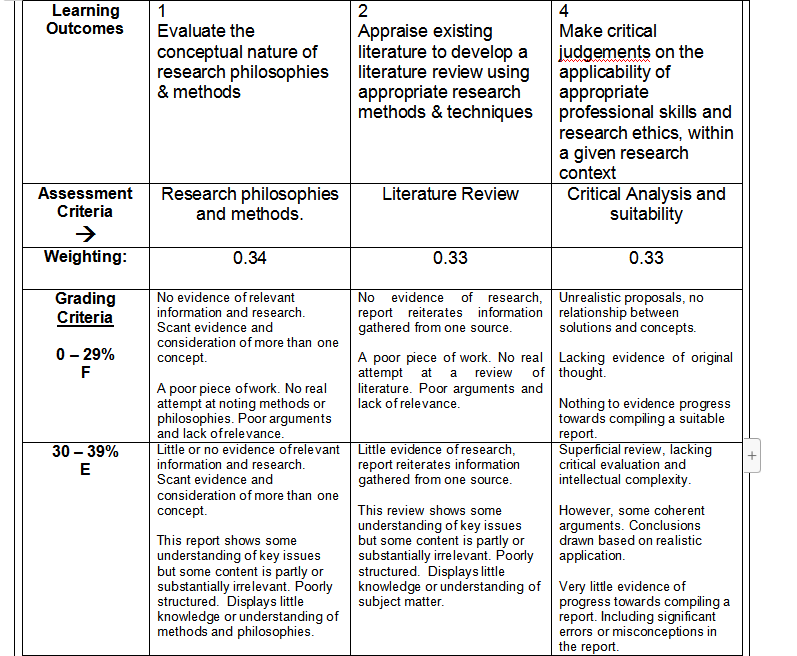
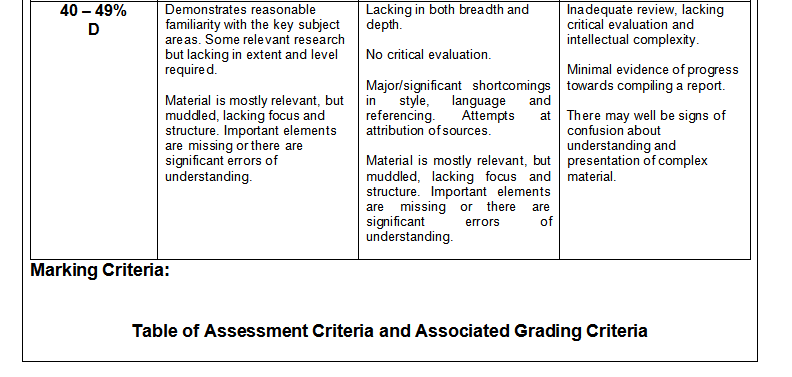
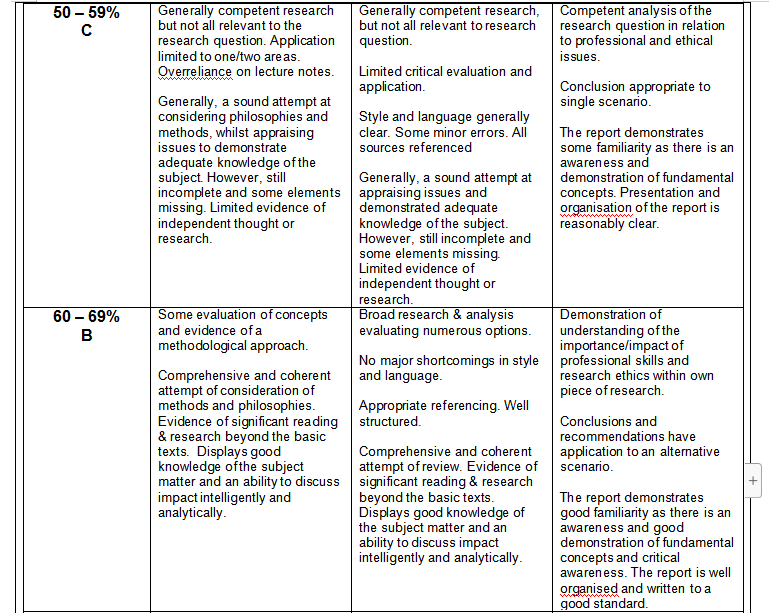
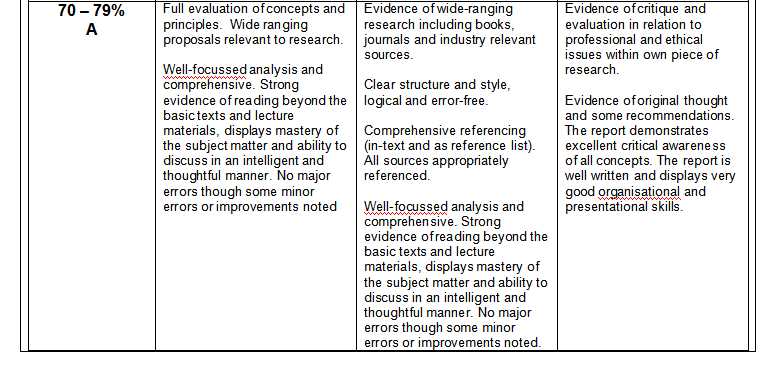
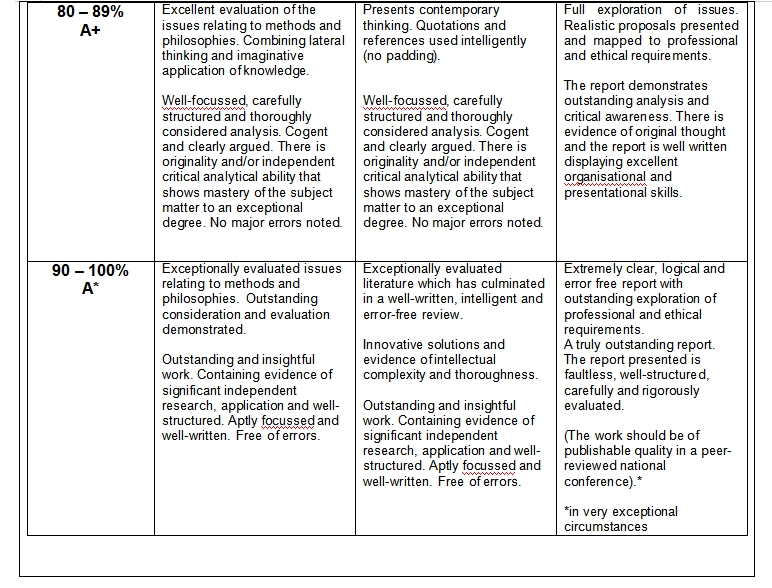
Submission Details:
|
Format:
Work will be submitted on Moodle using Microsoft Office files. The documents will be uploaded using Word and PowerPoint ONLY.
|
| Regulations: Coursework代写
· The minimum pass mark for a module is 50% · Re-sit marks are capped at 50%
Full academic regulations are available for download using the link provided above in the IMPORTANT STATEMENTS section
For IET accredited courses ONLY (MSc Mechanical Engineering and MSc Automotive Engineering)· For modules with multiple items of assessment, you must achieve a minimum of 40% in each item of assessment in order to pass the module. e.g. assessment 1 – coursework 50% and assessment 2 – Exam 50%, You must achieve an aggregate mark of 50% WITH every single assessment having a minimum mark of 40% or greater. For example if you achieved 90% in example assessment 1 and 20% in example assessment 2, the aggregate would be over 50% ((90+20)/2 = 55%), however you will still fail the module due to the 40% qualifying rule.
Late Penalties Coursework代写If you submit an assessment late at the first attempt then you will be subject to one of the following penalties:
· if the submission is made between 1 and 24 hours after the published deadline the original mark awarded will be reduced by 5%. For example, a mark of 60% will be reduced by 3% so that the mark that the student will receive is 57%. ; · if the submission is made between 24 hours and one week (5 working days) after the published deadline the original mark awarded will be reduced by 10%. For example, a mark of 60% will be reduced by 6% so that the mark the student will receive is 54%. · if the submission is made after 5 days following the deadline, your work will be deemed as a fail and returned to you unmarked.
The reduction in the mark will not be applied in the following two cases: · the mark is below the pass mark for the assessment. In this case the mark achieved by the student will stand · where a deduction will reduce the mark from a pass to a fail. In this case the mark awarded will be the threshold (i.e. 50%)
Please note: · If you submit a re-assessment late then it will be deemed as a fail and returned to you unmarked.
|
Feedback: Coursework代写
For 75% Report Assessment:
Your work will be marked in 20 working days and then an unconfirmed mark subject, to exam board ratification, will be uploaded to Moodle.
Marks and Feedback on your work will normally be provided within 20 working days of its submission deadline.
Where to get help:
Poonam, Aminu and Ian will be available for appointments upon request by email.
Students can get additional support from the library support for searching for information and finding academic sources. See their iCity page for more information: http://libanswers.bcu.ac.uk/
The Centre for Academic Success offers 1:1 advice and feedback on academic writing, referencing, study skills and maths/statistics/computing. See their iCity page for more information: https://icity.bcu.ac.uk/celt/centre-for-academic-success
Additional assignment advice can be found here: https://libguides.bcu.ac.uk/MA
Fit to Submit: Coursework代写
Are you ready to submit your assignment – review this assignment brief and consider whether you have met the criteria. Use any checklists provided to ensure that you have done everything needed.
Make sure the submissions dates and word counts are met (so you maximise your marks).
Please check your spelling, Grammar and Formatting are all correct and to an acceptable professional standard.
Make sure your files are not corrupt and the files open up in MS Word (failure to open will result in a zero award).




